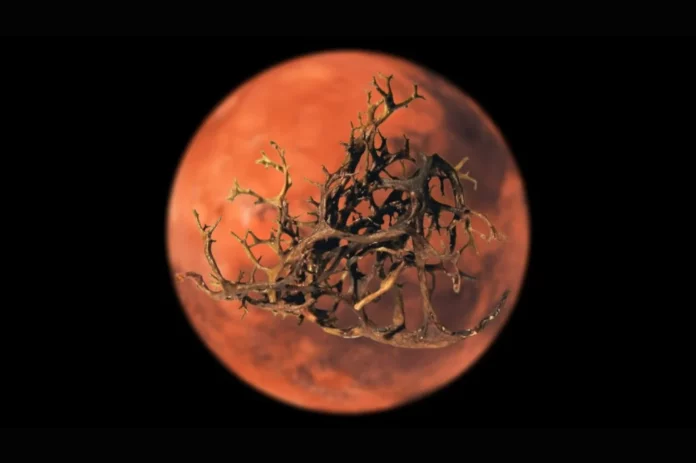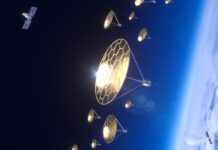Most planetary scientists agree that the extreme conditions of Mars would be unsuitable for life as we know it. However, new research suggests that we may be underestimating the endurance of lichens.
Researchers from Poland have discovered that some lichen species can withstand Martian conditions while remaining biologically active. As detailed in a study published on Monday in the IMA journal Fungus, their work challenges the common belief that the surface of Mars in its current state is completely unsuitable for any kind of life.
The researchers tested two types of lichens: Diploschistes muscorum and Cetraria aculeata. Lichens are bizarre, alien life forms composed of different organisms: fungi and algae and/or cyanobacteria (a type of photosynthetic bacteria), which are in close biological partnership. They are surprisingly resistant to harsh environmental conditions – in fact, lichens thrive in a wide variety of habitats, including freezing tundras and deserts.
Most planetary scientists agree that the extreme conditions of Mars would be unsuitable for life as we know it. However, new research suggests that we may be underestimating the endurance of lichens.
Researchers from Poland have discovered that some lichen species can withstand Martian conditions while remaining biologically active. As detailed in a study published on Monday in the IMA journal Fungus, their work challenges the common belief that the surface of Mars in its current state is completely unsuitable for any kind of life.
The researchers tested two types of lichens: Diploschistes muscorum and Cetraria aculeata. Lichens are bizarre, alien life forms composed of different organisms: fungi and algae and/or cyanobacteria (a type of photosynthetic bacteria), which are in close biological partnership. They are remarkably resistant to harsh environmental conditions – in fact, lichens thrive in a variety of habitat types, including freezing tundras and deserts.
“These results expand our understanding of biological processes in simulated Martian environments and show how hydrated organisms respond to ionizing radiation – one of the most important issues for survival and habitability on Mars,” explained Skubala. Hydrated organisms are organisms that contain enough water to maintain biological functions. “Ultimately, this study adds to our knowledge of lichen adaptation and their potential to colonize extraterrestrial environments.”
Although – as far as I know – NASA has no plans to colonize Mars with lichens in the near future, this study opens the door to rethinking what kinds of life might one day survive off Earth.









